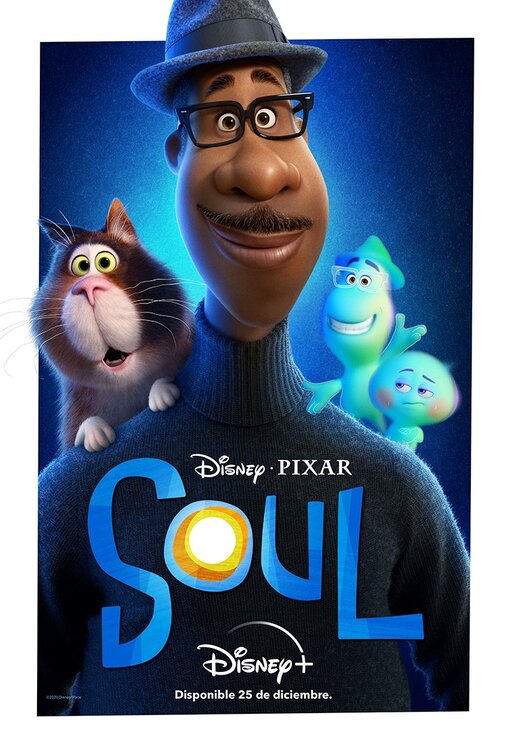This blog is in response to the Thinking activity given by Dilip barad sirhttps://blog.dilipbarad.com/2016/01/flipped-learning-network.html
This task is based on Flipped Learning based on "Existentialism".
First thing we need to understand what is flipped learning?
-While often defined simplistically as “school work at home and home work at school,” Flipped Learning is an approach that allows teachers to implement a methodology, or various methodologies, in their classrooms. To counter some of the misconceptions about this term, the governing board and key leaders of the Flipped Learning Network (FLN), all experienced Flipped Educators, have composed a formal definition of “Flipped Learning.” Explicitly defining the term may dispel some of the myths repeatedly promulgated by teachers, the media, and researchers. These Flipped Learning leaders also distinguish between a Flipped Classroom and Flipped Learning. These terms are not interchangeable. Flipping a class can, but does not necessarily, lead to Flipped Learning.
*Definition of Flipped Learning:
-Flipped Learning is a pedagogical approach in which direct instruction moves from the group learning space to the individual learning space, and the resulting group space is transformed into a dynamic, interactive learning environment where the educator guides students as they apply concepts and engage creatively in the subject matter.
The Four Pillars of F-L-I-P:
1. Flexible Environment
2. Learning Culture
3.Intentional content
4.Proffesional Educator
Let's talk about Existentialism:
Introduction:
Existentialism can be thought of as the twentieth-century analogue of nineteenth-century romanticism. The two movements have in common the demand that the whole fabric of life be recognized and taken into account in our thinking and acting. As such they express a form of resistance to reductionist analyses of life and its meaning for human beings. But there are also significant differences. Existentialism is typically focused on individual human lives and the poignant inevitability of suffering and choice for each individual whereas romanticism tended to be more oriented to the whole of nature and saw human beings as a part of that wider picture. Furthermore, romanticism flourished before the wars and genocides of the twentieth century whereas existentialism is born amid those horrors.
From one point of view, the existentialists divide roughly between writers (most famously, perhaps, Albert Camus) and philosophers. The philosophical existentialists divide roughly between the atheistic and the religious. Soren Kierkegaard (1813-1855) ["the ultimate anti-Christianity Christian"] is often considered to be the father of them all, but Friedrich Nietzsche ["the ultimate anti-Christ philosopher"] is a crucial figure at the origins of the developing line of atheistic existentialism. Religious existentialists included both Jews such as Martin Buber (1878-1965) ["the Protestant Jew"] and Christians such as Paul Tillich (1886-1965) ["the Christian crypto-atheist infatuated with Being and God"]. Other religious existentialists include Karl Jaspers, Gabriel Marcel, and Karl Rahner. The atheistic existentialists include Martin Heidegger (1889-1976) ["the non-Christian atheist infatuated with Being and time"], though he denied that he was an existentialist, and Jean-Paul Sartre (1905-1980) [the ultimate atheist infatuated with Being and nothingness].
It is quite a cast of characters. And the classifications make less sense the better you know them, not least because it is hard to disentangle theism and atheism in the context of existential reflection on human life. The plan here is to examine a few themes commonly treated by existentialists and then to examine the thought of Kierkegaard more closely.
Themes in Existentialism:
1. Importance of the individual
2. Importance of choice
3. Anxiety regarding life, death, contingencies, and extreme situations
4. Meaning and absurdity
5. Authenticity
6. Social criticism
7. Importance of personal relations
8. Atheism and Religion
9. Religion
In this Video I can see that this philosophical term came after world war second and in that way that writer who believe in existentialism they see all disaster of world war's and because of this they started believe or they have some "Existential Crisis".
Basically in this blog I am going to write based on Teacher's bloghttps://blog.dilipbarad.com/2016/09/existentialism-video-resources.html In this blog you find some videos and sir gave us a Flipped learning based on this videos we need to write what is in this videos and what we understand from that particular video.
1.What is Existentialism?
Some days ago we have one workshop on this Albert Camus(1913-1960) this workshop is hosted by Gujarati department. In this workshop or we can say expert lecture by Dipak Solia sir and he gave lecture on Camus and his works and philosophical suicide. In this video this speaker is talking about Camus and his famous work "The Myth of Sisyphus". What I understand from this video is: Thinking about life and all other absurd thing it drive us to suicidal thoughts.
(This is comical way of showing Albert Camus's "The Myth of Sisyphus")
3.The Myth of Sisyphus: the notion of philosophical suicide:
In this video he tells that If we follow Camus in thinking that there is “one truly serious philosophical problem and that is suicide”, then we are committed to the notion that to decide whether life is worth living or not is the fundamental question of philosophy. The absurd is a discomforting situation. It consists of a fundamental disconnect between the desire of the human being for ultimate meaning — the ultimate meaning premise — and a universe that constantly frustrates this desire with its unintelligibility, its indifference, and its impersonal nature — the impossibility premise. “there can be no absurd outside the human mind.” We can also look at it from the following manner. If we lose one entity in a relation that is composed of two entities, the relation necessarily ceases to exist, since a relation requires at least one other entity for the first one to relate to. Therefore, we see that “the absurd ends with death.”
4.Dadaism, Nihilism and Existentialism:
In this video he said that existentialism is emerged after world war-2 and, Dadaism is emerged after ww-1. Some believe that dadaism is not connected with nihilism or anything else. Existentialism forces you to became who you are and not to accept what other impose on you. Dadaism is questioning on values what other created.
5.Existentialism - a gloomy philosophy:
so, this video said about Existentialism: a gloomy philosophies. It says that some negative words like Anxiety, Absurdity this all life's part. It says Anxiety + Life=? It also says that if some one is believing in god, some are not. Existentialism is not narcissist philosophy. And we know that this movement coined after world war-2 and because of this war's disaster it came into use of Existentialism. It is result of emptiness.
6.Existentialism and Nihilism: Is it one and the same?
This video said that nihilism and existentialism is not same thing. it also says that A nihilist believes that life is meaningless and the only known truth is the existence of the self. An existentialist believes that life is meaningless too, but that meaning can be created by the individual. They actually compliment each other. With nihilism, there is no objective value. With existentialism, giving how the universe doesn't care about you, you are responsible for making the most of your existence.
7.Detail on Existentialism:
“If we believe in nothing, if nothing has any meaning, and if we can affirm no values whatsoever, then everything is possible and nothing has any importance.”
-Albert Camus
8.Explain like I'm Five: Existentialism and Nietzsche:
In this video you can enjoy the process. This video is like Learn with Fun.
9.Let us sum up: From Essentialism to Existentialism
In this video it says all about existentialism and how it's work. it is also says that we are living in meaningless word and we do not have meaning of our own life That's why it is called Absurdity. In this it is mentioned that Jean Paul Sartre said that "We condemn to live."
I watched one cartoon movie which is available on Disney+Hotstar, Name of this movie is "SOUL".
Released : 2020.
Directors: Pete Doctor, Kemp Powers(co-director)
-What is the message of Soul movie?
Doctor says the film's message is that life has meaning that goes beyond personal ambition. "The movie's aim is really to say that we're already enough," he says. "We all can walk out of the door and enjoy life without needing to accomplish or prove anything. And that's really freeing."
Soul is a beautiful movie about a man named Joe who wants nothing more in life than to be a professional Jazz musician. After getting the opportunity of a lifetime, he does not feel the same way about it and questions his own existence. Joe then, unexpectedly, has an out-of-body experience that allows him to explore answers to many of life's questions about our body, soul, and if we have a purpose in life. Along with his new pal 22, they must try to get back to earth but not without first finding their purpose.
Joe is a charismatic man who is such a relatable character; you connect with him right away. His new friend, 22, is a funny free-spirited character, and the two make for a great duo with contrasting ideologies about how to live life.
Joe and 22 have an interesting journey in the film as Joe gets to see someone else live his life, and through this experience, Joe realizes that there is no exact formula to living life, and it's about the adventure, not the final result.
Peter Doctor returns to the director's chair to make you cry for the millionth time. Peter and Pixar seem to understand their audiences are not children anymore as the stories evolve with each film release. This understanding has allowed them to tackle very heavy questions about life, death, and our existence; more so than any other film I have ever watched.
The script is beautifully written and is full of so many new unique inspirational quotes that just make you question life and your own decisions you have made. Atticus Ross, Jon Batiste, and Trent Reznor put together a gorgeous soundtrack that takes you on an emotional rollercoaster that compliments every aspect of the film.
Soul is one of the best movies to come out of 2020 by far. It delivers such a powerful perspective on life and how we live it.
Anyone who is a practicing artist, or has dedicated much of their life to a goal, should relate to these feelings of self-doubt that Joe goes through in the film.
Sometimes you just have to live your life, have fun, and enjoy the ride. We all know life gets crazy and hectic, and are all guilty of letting it take control. We are so blessed to be living right now, and we often forget what it is like to look up at the stars, or to take in the wonderful scent of a flower, or getting lost in a beautiful song. Life is made up of small moments and as Joe says " I'm going to live every minute of it".
This blog is based on my understanding. Thank you so much for visiting.
{Words-2008}
{Images-05}
{Video-12}





No comments:
Post a Comment